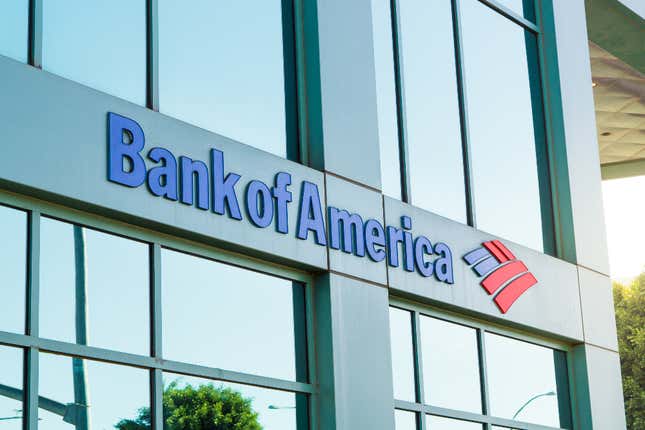
An aspect of racial profiling that probably doesn’t get talked about enough is banking while Black. It happens when a bank employee sees a Black customer looking to cash, deposit or withdraw a relatively large sum of money and believes, due to their implicit bias, that something isn’t right, so they refuse service to the customer and, in some instances, even go as far as to call or threaten to call the police.
San Diego, Calif., attorney John Pittman III said he experienced banking while Black at Bank of America in Pacific Beach last year when he tried to cash a $12,000 insurance settlement check only to have the bank’s assistant manager refuse him service, accuse him of trying to steal and at least pretend to call the authorities to get him to leave the bank.
“I’m thinking this would not have happened if I wasn’t a Black person,” Pittman told KPBS in a recent interview.
Pittman said when he tried to cash a check from Geico following a car accident, he was told he couldn’t cash it because the name on his driver’s license didn’t match the name on the check, which didn’t include the “III” suffix after his last name. Pittman figured it would be an easy fix and all he would need to do is have the bank verify his information with his insurance company. According to Pittman, that didn’t work out well because his Blackness was too loud for common sense to be heard.
From KPBS:
Pittman, who said he worked in the finance industry for 19 years as a loan processor and financial advisor, suggested a fix.
“Just call the insurance company, no big deal,” Pittman said he told the assistant branch manager. “They’ll verify the social security number and a birthday, which is on all my stuff anyway. And on the check, it actually said, ‘for vehicle repair.’ And she said, ‘no, no, no. We can’t. Even if we call to verify, we have no way to know that we verified.’”
But Pittman said she wouldn’t say why.
Frustrated, he said he called GEICO and put an insurance company representative on his cell phone speaker to speak with the assistant manager. But that only made her more suspicious, he said.
“She says, ‘well, I don’t know who you are. You could just be one of his friends,’” Pittman said.
If Pittman’s story is true, one can’t help but marvel at what he was accused of here. For the bank employee’s suspicions to be accurate, Pittman would either have had to come across a $12,000 insurance check that happened to have his exact name on it minus the suffix, or he would have had to forge it himself without bothering to include his full name. Then, he would have had to have a friend pose as a Geico associate to give the ruse more credibility.
But let’s say you believe that scenario is more plausible than a Black man just trying to cash a check he has the right to cash. According to Pittman, the Geico employee urged the bank’s assistant manager to call the insurance company herself to verify everything, but not only did she refuse to do that, she informed Pittman that the cops had been called.
“‘We’ve notified the authorities,’” Pittman said, recalling what she told him. “So you’re trying to steal the money from the real John Pittman.”
“She picked up another phone,” Pittman continued. “She starts talking, saying ‘oh, someone’s here trying to steal the money from someone.’”
In a statement to KPBS, a Bank of America corporate spokesperson confirmed that Pittman was refused service due to the name on his ID not being an exact match to that of the check, but said the police were never called.
“Given the name on the check didn’t match the name on the identification and the individual wasn’t a Bank of America client, our team followed the bank’s policy and declined to cash the check during the individual’s visit in January 2020,” spokesman Bill Hallidin said. “This is standard industry practice, and it is based on best practices to protect against potential fraud.”
Hallidin didn’t address the real issue, which was the harsh and probably racist treatment of Pittman by the bank employee. It’s hard to believe part of that “standard industry practice” includes refusing to verify the customer’s information at the customer’s request and threatening to call the authorities behind the matter.
“I just cannot see them calling the police on every person that they get a check from that doesn’t have junior or a third or whatever,” Pittman said. “That just doesn’t make sense.”
It isn’t the only time a Black customer has accused a bank employee of racial discrimination.
Earlier this year, a Black woman, Gwen Samuel, said a teller at a TD Bank in Connecticut refused to let her withdraw $1,000 from her account telling her without any further explanation, “I don’t feel comfortable giving you the money.”
As for Pittman, he said that even after more than a year and a half, the incident still haunts him.
“It makes you feel two inches tall,” Pittman said. “It makes you feel targeted. I didn’t stick around for the police to come. But I guess if I had stayed there or the police would have shown up, the situation could have gotten ugly, you know.”
Pittman said he ended up cashing the check at his Texas-based credit union.

